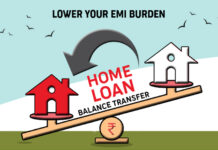PCP car finance is one of the most popular forms of car finance. Drivers like PCP car finance as it gives them access to lower monthly payments, more flexibility, and the freedom to get a new or used car. And whilst there are so many advantages to getting a car through Personal Contract Purchase, there are still a lot of myths surrounding PCP deals and if they’re really worth it. It’s true that PCP deals won’t be suitable for everyone and if you have a lower credit score or want to own the car throughout the agreement, it may not be for you. However, let’s get more insight into how PCP deals work and also the most common myths surrounding this type of finance.
What is Personal Contact Purchase?
Personal Contract Purchase or PCP is a form of hire purchase and is a secured loan. PCP car finance allows you to get a loan to help to buy a car. Unlike a personal loan though, PCP deals help you to cover part of the cost rather than spread it into equal monthly payments. PCP deals can benefit from lower monthly payments as you are deferring much of the amount until the final balloon payment. If you want more freedom and flexibility from your car finance deal, then PCP could be the right way to go.
Common PCP myths busted:
When it comes to getting a used car on PCP there are a number of common myths that many drivers believe to be true. However, we reveal the truth in the guide below.
- Mileage doesn’t matter.
When it comes to PCP car finance, your mileage is really important. At the start of the agreement, you will need to agree on an annual mileage over the course of the agreement. This is because lenders use the milage to predict the Guaranteed Future Value of the vehicle. The car should come back to the dealer within the agreed mileage, or you can pay additional charges to make up the difference. If you want to keep costs low and have no surprises at the end of the deal, you should make sure your predicted mileage is accurate and realistic.
- You’ll never own the car.
Whilst PCP car finance can be beneficial if you like to change your car more regularly, it doesn’t mean that owning the car is not possible. However, PCP car deals have lower monthly payments because a lot of the cost is deferred until the final balloon payment. This final payment can be thousands of pounds to pay, and most drivers don’t have this kind of money to hand. If you wish to keep the car, you could refinance a final PCP payment with a lender or pay it in one go in the form of a final option to purchase fee.
- Smaller deposits are better.
There are so many car finance deals that don’t need a deposit and paying as little as possible can seem attractive. However, the loan amount determines your monthly payments and interest rate. By putting more down at the start of the agreement, it can be more cost effective as it lowers your monthly payments and there can be less interest to pay too. It can be worth checking the deposit contribution of each manufacturer, lender, or broker as some of them set a limit of around 30-40% of the cars value.
- You get your deposit back.
It may seem confusing as its better to put down a higher deposit for a PCP deal, but you then won’t get your deposit back. The word deposit can be misleading when it comes to PCP deals anyway. This is because the deposit is really just a first initial payment to help reduce the cost of the monthly instalments. When the agreement ends it’s not like the deposit you put down for renting a house and you won’t be able to get any money back.
- PCP has the lowest monthly payments.
This can be true when comparing hire purchase and PCP deals on the same value car. This is because with HP, the value of the car is split into equal monthly payments with interest and PCP deals mean that most of the cost is left till the final payment instead. However, this doesn’t mean that PCP is the most cost effective. It can be worth taking some time to explore different car finance options to see which is the most suitable. It’s worth considering factors such as the value of the car, the length of the loan term and your interest rate offered as all 3 can affect the cost of the monthly payments.
































